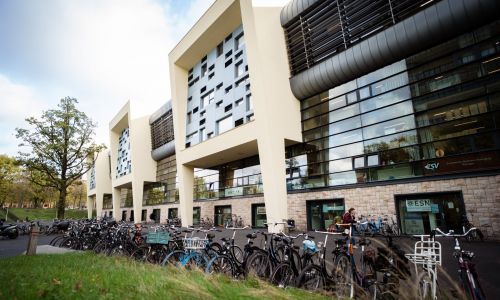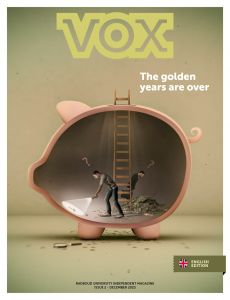Economists often copy themselves
 Foto: Rico S (CC)
Foto: Rico S (CC)
Scientists commit self-plagiarism on a large scale. Science sociologist Willem Halffman concludes this in a publication that was published yesterday. Especially economists are good at it: one in seven publications contains a problematic amount of recycled text.
Recycling has a positive image, except when it concerns research. As a researcher, you should always add a reference when you re-use a piece of text – even if it comes from your own work. Often, this does not happen, research by Willem Halffmann and PhD student Serge Horbach shows. The outcome of their research is published in Research Policy magazine.
The economists are doing the worst. One out of seven studied articles within that field of research (14 percent) contain problematic amounts of recycled text. This is the case – according to Halffman and Horbach’s definition – when at least 10 percent of the text has been re-used, without reference. Another outcome: the higher the ‘production’ of scientists, the more they commit self-plagiarism.
‘It is useless to publicly shame researchers’
Apart from economy, three other fields were studied: psychology (5 percent problematic self-plagiarism), biochemistry (3 percent) and history (0,5 percent). Halffman: ‘We wanted to aim at different kinds of fields. We added economy because there were signals that self-plagiarism is accepted there.’ Halffman is surprised by the big differences between research fields. He blames those differences on ‘culture’: self-plagiarism is more accepted in one place than in another.
Nijkamp
The reason for the Nijmegen researchers to study this topic emerged back in 2013, when renowned economist Peter Nijkamp fell off his pedestal after his frequent re-use of text was made public. ‘That was very focused on him as a person’, says Halffman. ‘That is not fair. Economists already said back then that this happens a lot in their field. So I thought: we can check that.’
Checking it was not that hard. Papers and theses made by students are also checked for plagiarism. Halffman: ‘Papers made by the same author can be checked the same way, of course.’ Halffman and Horbach still had to check with their own eyes whether there were adequate references.
Conflicts
Halffman and Horbach made sure that the people, research group or institution involved in the study were not traceable in the outcome of their research. ‘It is useless to publicly shame researchers. It will only lead to conflicts. Of course researchers have their own responsibility, but that is not very relevant in this case.’
Halffman thinks it is more important that the universities and people involved with them learn from this research. ‘Researchers work in a world in which they are judged on their output: the number of articles they produce. We need to end that. The assessment system should be more focused on the content of publications.’
If economists come to the conclusion that they are perfectly fine with self-plagiarism, than ’that’s fine’, according to Halffman. ‘But it shouldn’t lead to extra money for the research field, just because they are nice and productive.’



